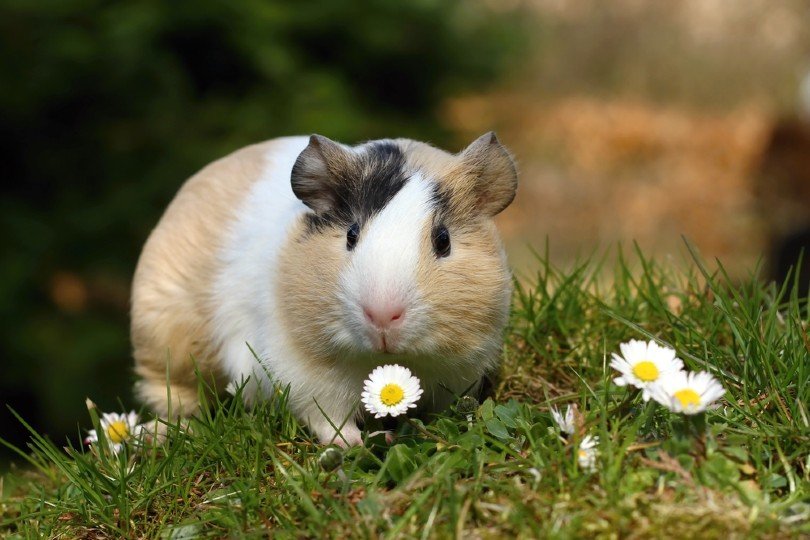
Eating our greens is easier when there’s a side of asparagus at the table. It’s just so delicious and healthy! But can guinea pigs partake in the fun?
Yes! Guinea pigs can eat asparagus. It’s not toxic to your furry buddy and can be a healthy addition to their diet when given in small amounts.
A word of caution: Feeding too much asparagus to your guinea pig can increase their risk of bladder stones. Very small portions once or twice a week are ideal.
For further considerations on the health benefits of asparagus and why you should be cautious when feeding it to your guinea pig, read on!
About Asparagus and Fun Facts
Asparagus is an herbaceous plant that has been enjoyed by humans for thousands of years. It also has a long history as an aphrodisiac and medicinal food. Humans tend to only eat young asparagus, or the shoots. Once the plant grows large enough, it ends up branching out and looking more like a fern or tree, and although woody stalks may sound appetizing to a guinea pig, they are far too fibrous for people.
The most common color of asparagus in American grocery stores is the bright green variety, but there are also white and purple asparagus. Guinea pigs can eat all three!

Health Benefits of Asparagus for Guinea Pigs
In small amounts, asparagus can benefit your guinea pig in a number of ways.
Antioxidants
These versatile nutrients found in asparagus are beneficial to your guinea pig’s general health. They can boost the immune system and help prevent urinary tract infections. Antioxidants also protect cells from dangerous oxidative stress and free radicals.
Vitamin A
Asparagus is rich in vitamin A, which supports many functions throughout the body. It contributes to the development of skin and tissues, as well as eyesight. It supports the health of multiple organs, including the liver, the heart, and the lungs.
Vitamin C
Similar to humans, guinea pigs cannot synthesize their own vitamin C in their bodies. That’s right, just like pirates and other sailors, guinea pigs have to worry about getting scurvy! Asparagus is one of the top recommended sources of vitamin C for guinea pigs.
Vitamin K
Vitamin K helps your guinea pig’s blood clot when they have a cut or injury and contributes to the healing process. Asparagus has tons of this essential nutrient!
The best part about getting more vitamin K in your piggy’s diet is that it also helps regulate calcium in the blood. Excessive calcium can contribute to bladder stones, a painful and sometimes dangerous condition that is common in guinea pigs with a poor diet.

Can Asparagus Be Bad for Guinea Pigs?
There are quite a few health concerns that you should know about before you add asparagus to your guinea pig’s diet. Moderation is key here!
Bladder Stones
One of the biggest reasons you should limit the amount of asparagus that you give your guinea pig is that asparagus contains oxalic acid, which can cause bladder stones, or the crystallization of calcium in the urinary tract that is incredibly painful to pass. That said, asparagus is a moderate source of oxalic acid and therefore, is safer than some other vegetables in this regard.
Guinea pigs are already prone to bladder stones, so they need extra caution when it comes to asparagus. As an occasional treat, asparagus can be fine, but don’t include it as a regular staple of their diet.
Pesticides
Small herbivores like guinea pigs are incredibly sensitive to pesticides. These common chemicals can be toxic, upset a guinea pig’s stomach, and even lower their immune system. Be sure to thoroughly wash any vegetable that you give your piggy.
Digestive Upset
Depending on your guinea pig’s constitution, large amounts of asparagus can cause problems for their belly. Bloating and gas, constipation, or diarrhea are all common effects of too much asparagus.
To avoid issues like this, it is always best to introduce new foods to your piggy slowly and cautiously. See how they react to a small amount first. Do you notice any lethargy or irregular bowel movements? If so, asparagus may not be a good option for your furry friend.
How to Feed Asparagus to Your Guinea Pig
Asparagus should be served to your guinea pig washed and totally raw. Your little piggy can eat any part of the asparagus, from stalk to tip and everything in between!
Never feed your guinea pig cooked or seasoned food. Their gastrointestinal system is not designed for cooked food, and they cannot digest it.
How Much Asparagus Should I Feed My Guinea Pig?
A few small slices no more than twice a week will suffice. Don’t go overboard, even if your guinea pig ends up loving asparagus.
It may be hard to say no to those pleading eyes and happy squeaks, but moderation is critical. Eating excessive amounts of asparagus can increase your guinea pig’s likelihood of developing bladder stones. Proceed with caution and care for your fuzzy little friends!

Summary
So, can guinea pigs eat asparagus? Yes, any color of asparagus is safe for them to consume. Feel free to share a couple of small slices of fresh, clean asparagus with your guinea pig.
However, while this herbaceous vegetable is not toxic for guinea pigs, it is also inadvisable to feed it to them regularly or in large amounts, no matter how much they squeal!
Happy munching!
Featured Image Credit: Taken, Pixabay










